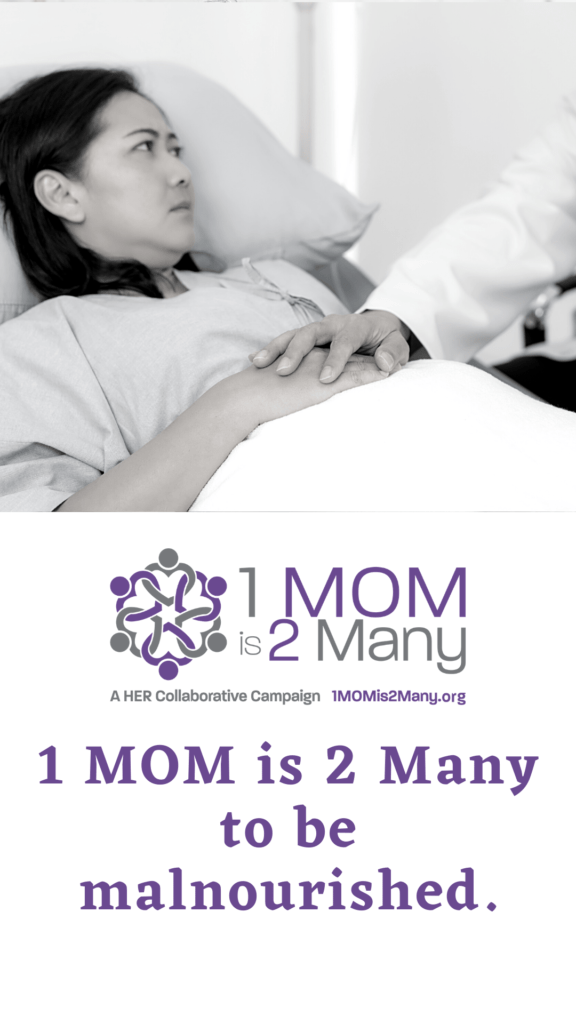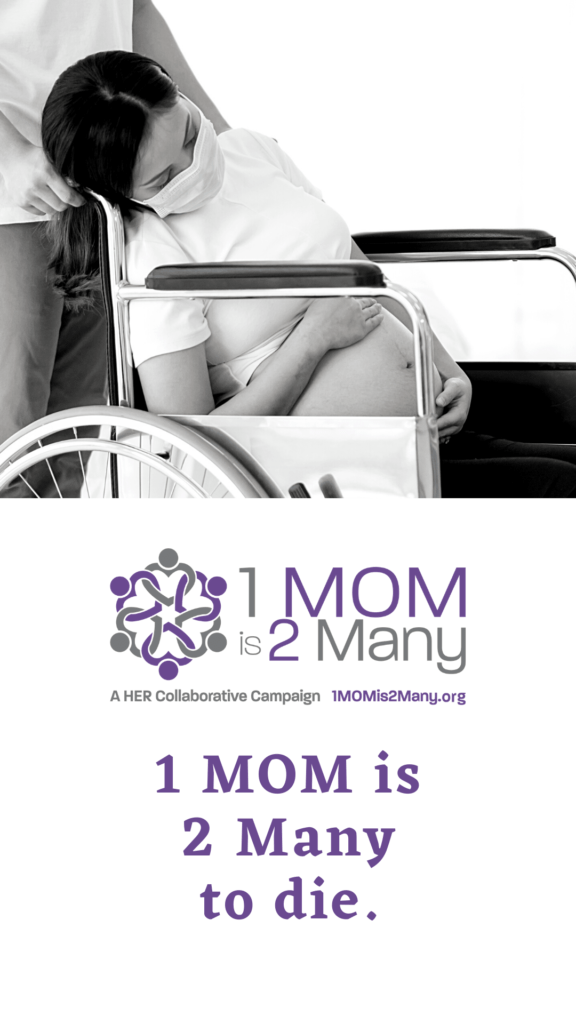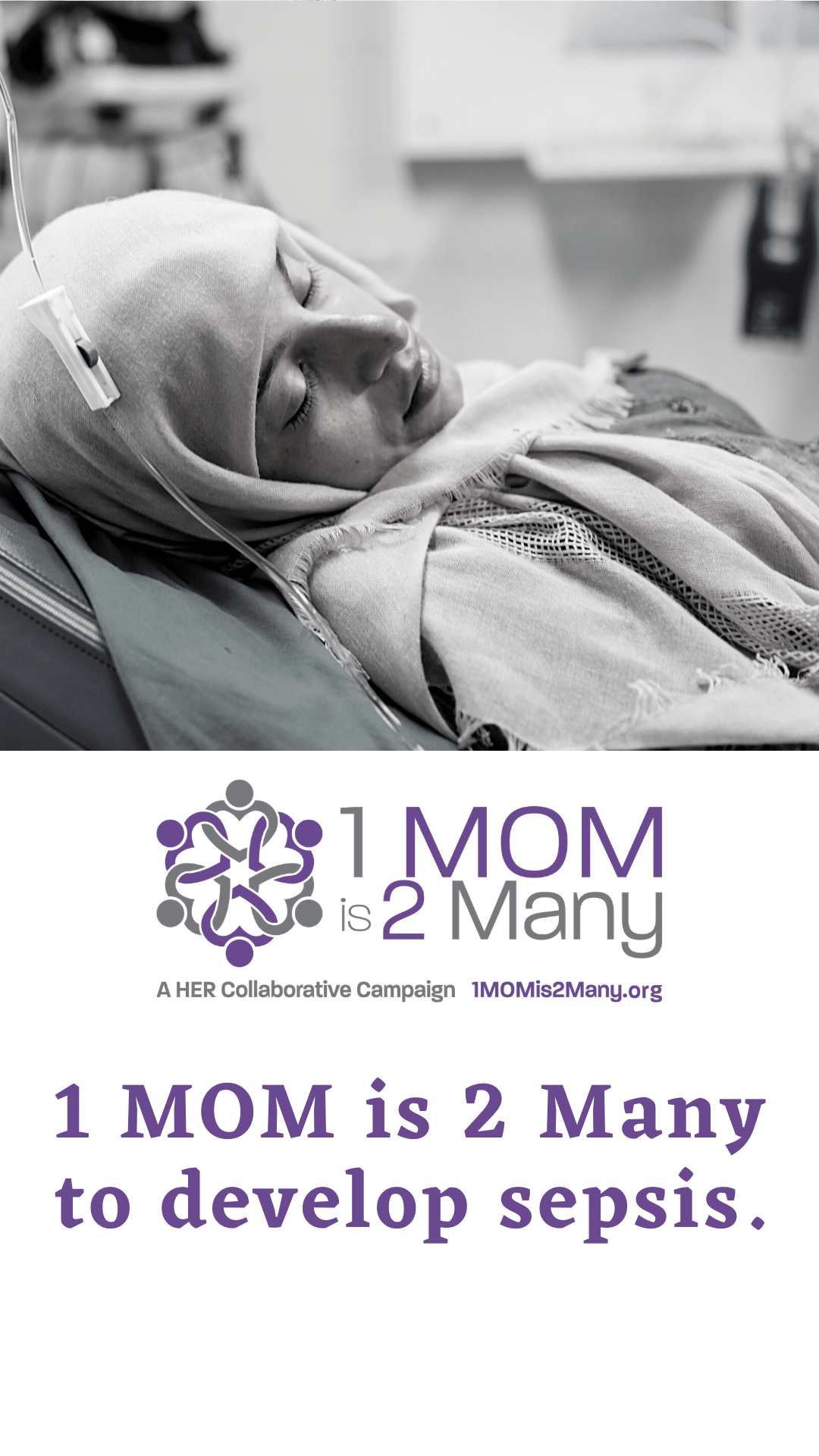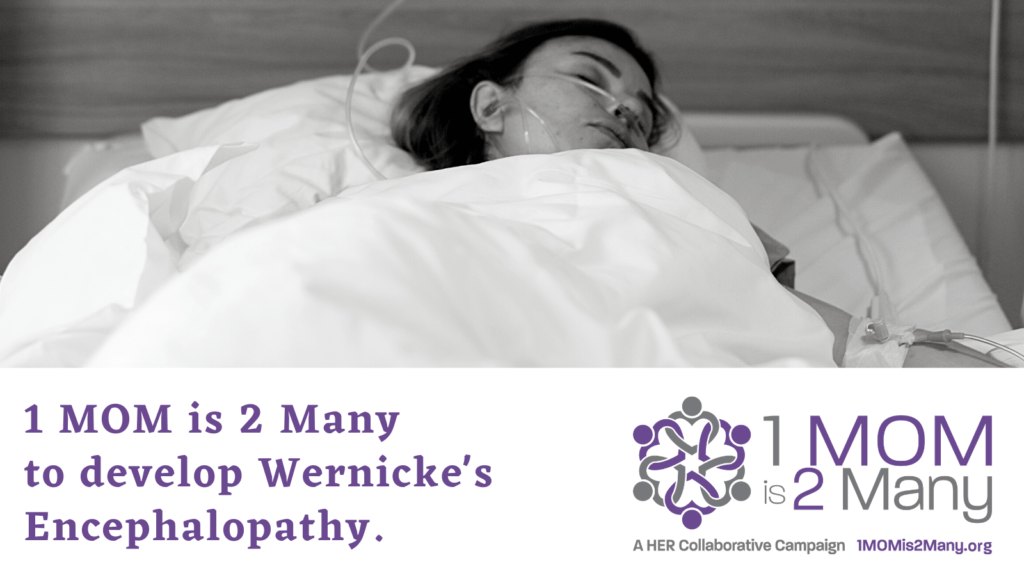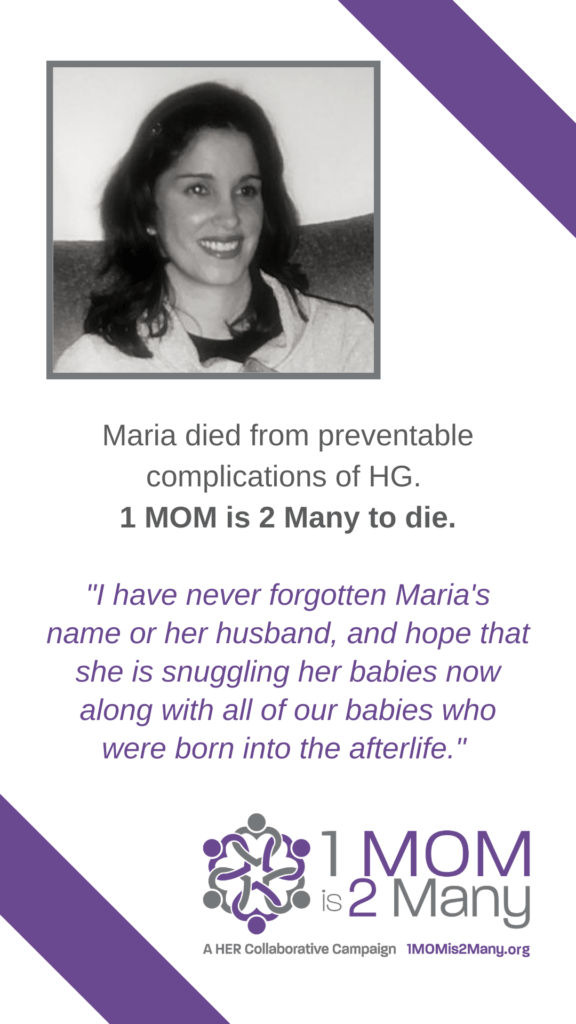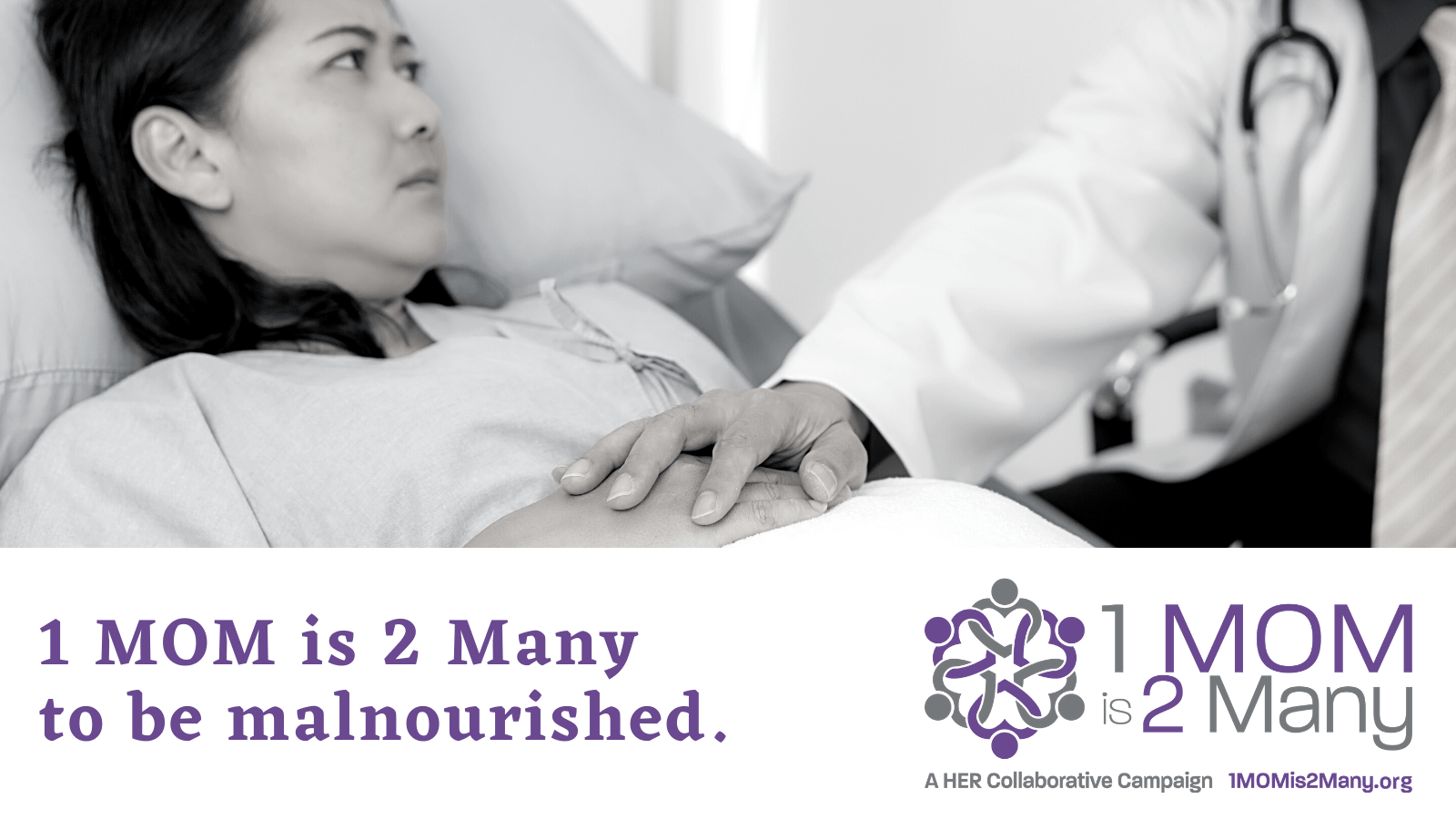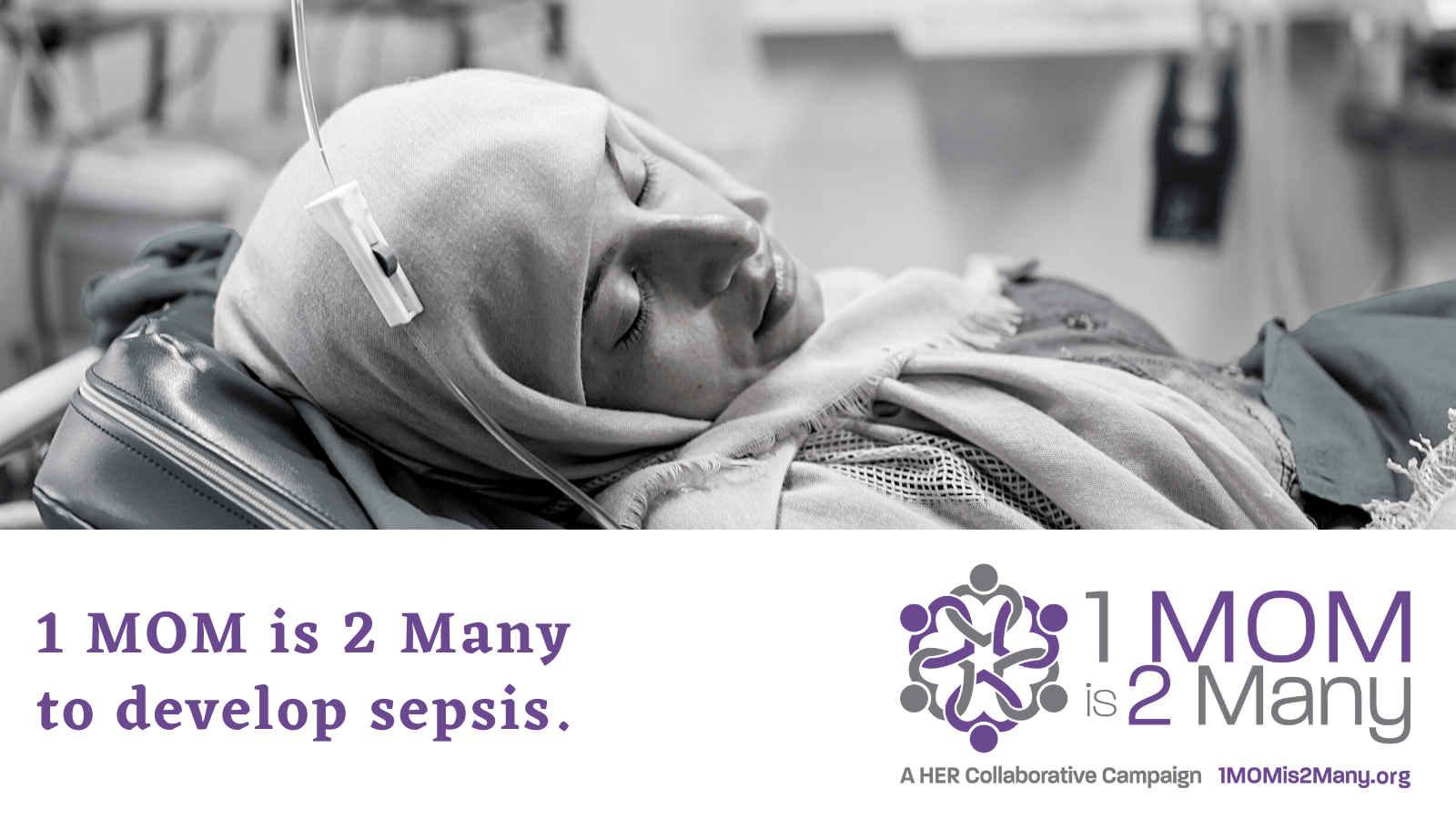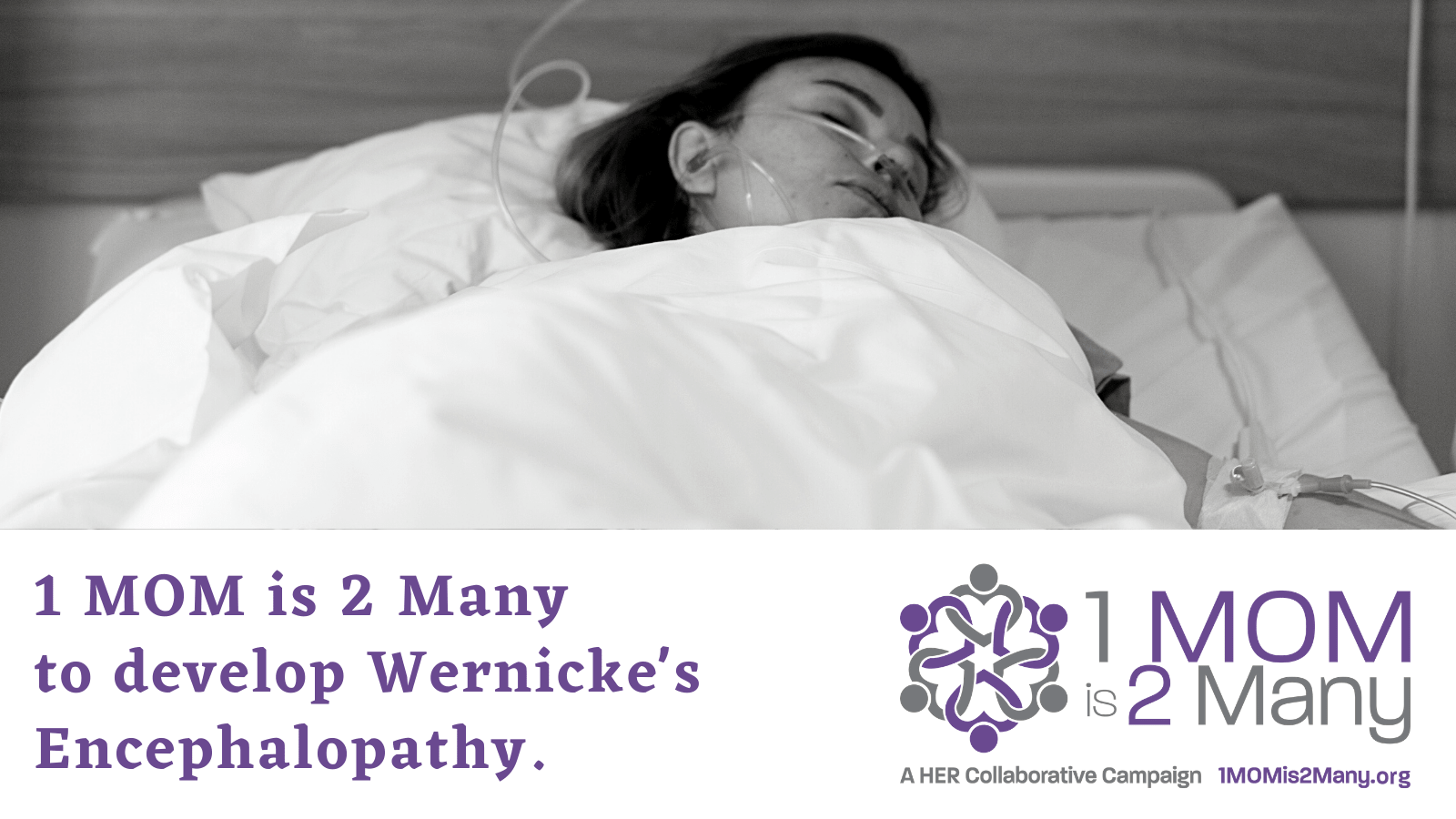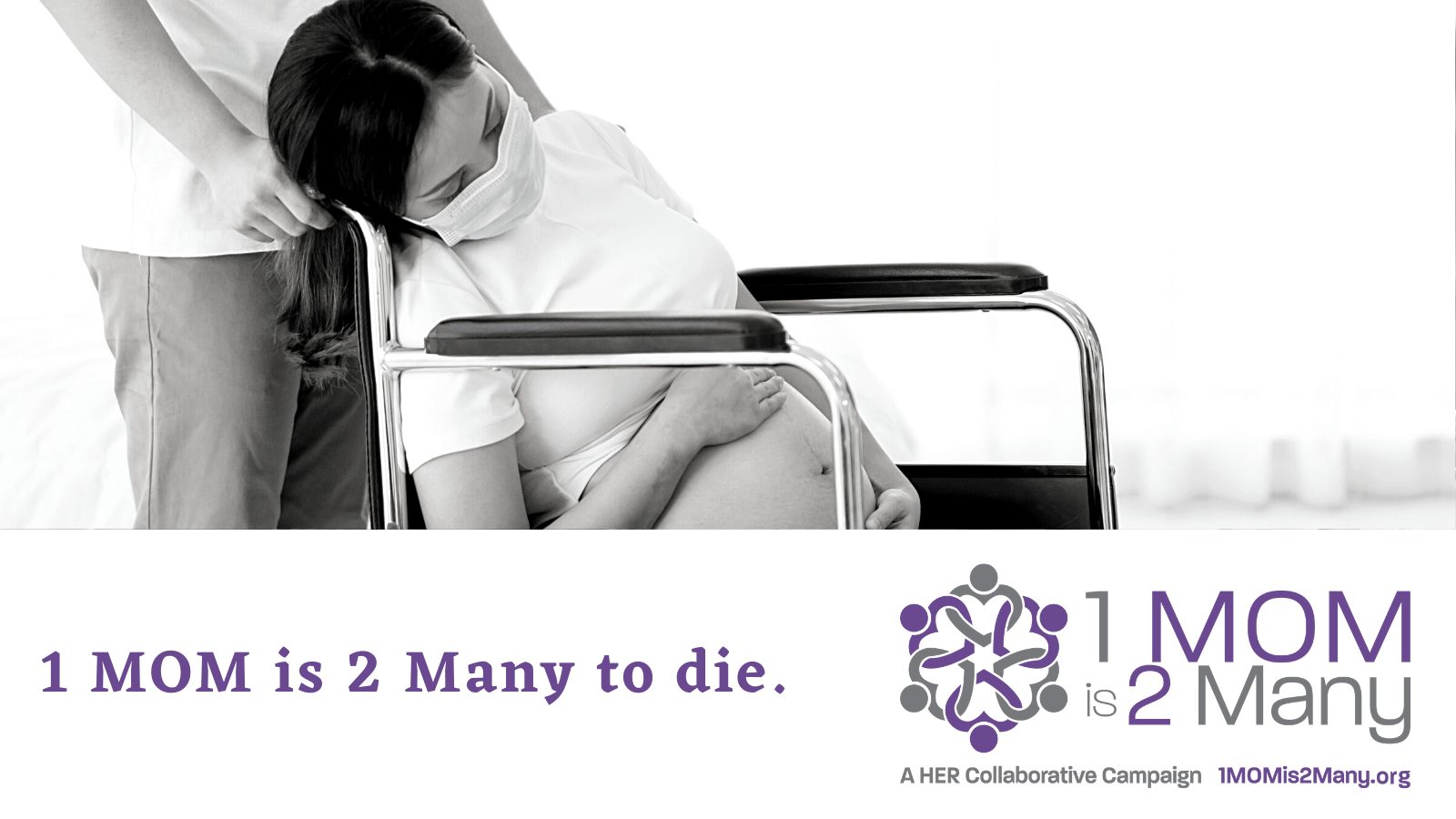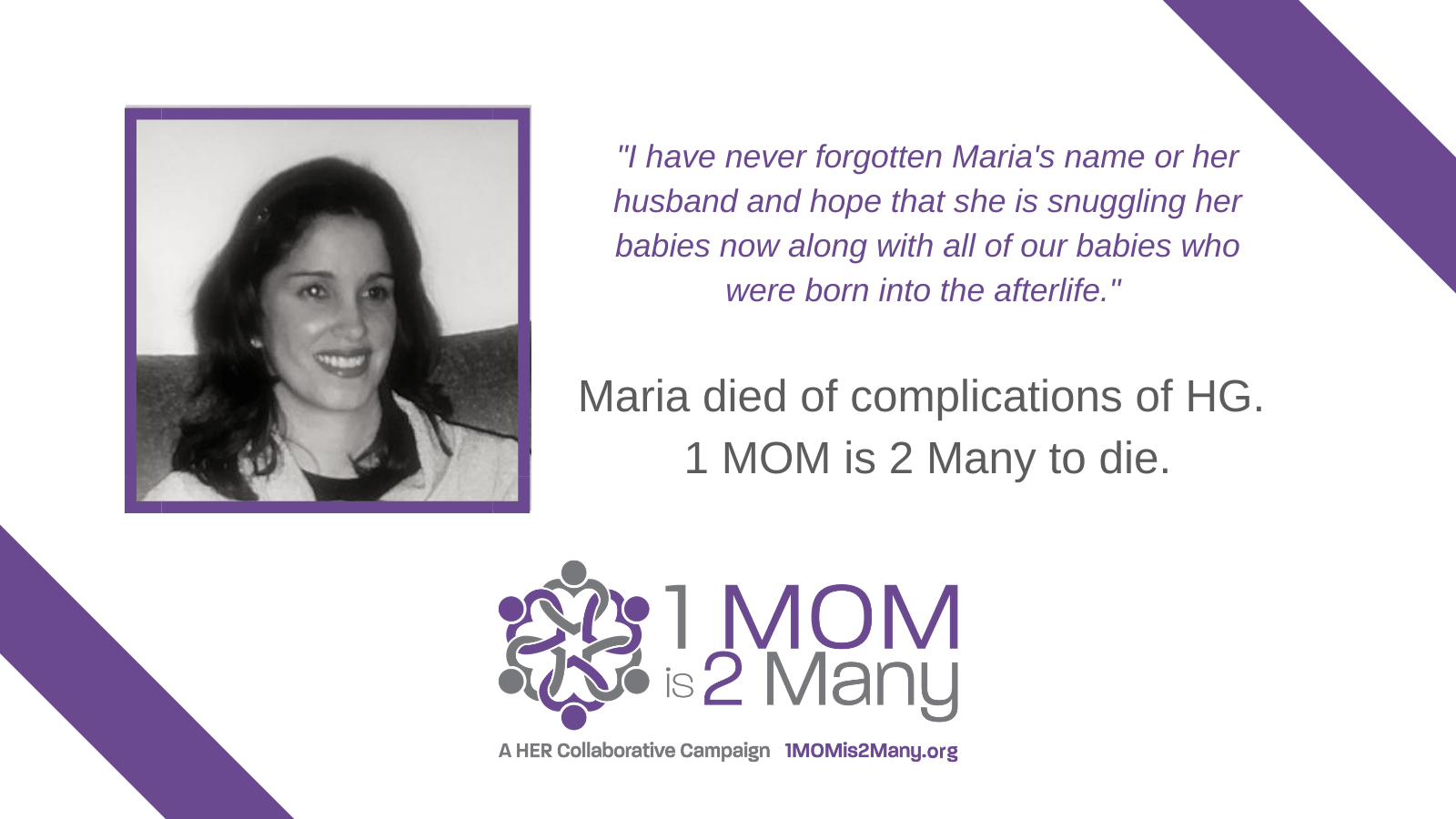Amy Schumer, Kate Middleton, Kelly Clarkson, Maria Shriver, Ayesha Curry, Alexander Hammer, and other celebrities have been instrumental in raising awareness of Hyperemesis Gravidarum (HG). You can help 1 MOM is 2 Many continue that awareness and move maternal health policy and practice forward. HG is defined as a potentially life-threatening pregnancy disease that may cause weight loss, malnutrition, dehydration, and debility due to severe nausea and/or vomiting, and may cause long-term health issues for mother and baby(ies).

This clip from Amy Schumer's, Expecting Amy, features HG expert Kimber MacGibbon, Co-founder and Executive Director, HER Foundation.
Join the 1 MOM is 2 Many collaborative campaign. Select captions, download graphics, and amplify women's voices. When sharing, please tag @1MOMis2Many and include the hashtag #1MOMis2Many. We want to send some swag to all influencers with over 10K in followers as well as track the reach of this important campaign to save lives and improve outcomes.
- The HER Foundation launched 1 MOM is 2 Many to drive effective maternal health policy forward to meet the needs of patients and ignite progress through education, collaborative advocacy, and the amplification of women’s voices. Learn more: 1MOMis2Many.org. #1MOMis2Many
- Pregnant women suffering with hyperemesis gravidarum (HG) and related complications are too often deprived of respectful, appropriate, effective care and deserve a chance at a healthy future. Learn more: 1MOMis2Many.org. #1MOMis2Many
- 1 MOM is 2 Many works to eradicate preventable maternal and fetal morbidity and mortality as a result of HG. Together with our partners, we strive to promote standardized treatment and assessment for improved outcomes through policy and advocacy. Learn more: 1MOMis2Many.org. #1MOMis2Many
- Our family will forever feel incomplete without her and her children. It’s tragic. If only we had been given information about possible pregnancy complications or she had been given prenatal vitamins with thiamin in the hospital daily, we may not have lost the three of them. Read Maria's story: 1MOMis2Many.org. #1MOMis2Many
- I remember grieving, even though I had never known her, because she and her babies were deaths that could have been avoided had the staff at the hospital been either educated or taken the time and not dismissed an HG mom so quickly. Read Maria's story: 1MOMis2Many.org. #1MOMis2Many
- I remember when Maria's husband posted and the shock of a young mom who was pregnant dying at the hands of the medical establishment who had not understood her disease. Read Maria's story: 1MOMis2Many.org. #1MOMis2Many
- I am not the only woman who still cries when we talk about Maria’s death. That it could have been any of us is true, but moreso, the tears are now filled with anger as well as grief. There should be no story to tell. Read Maria's story: 1MOMis2Many.org. #1MOMis2Many
- Maria's death was due to medical neglect and ignorance, things HG moms face far too often. We aren’t believed, we aren’t treated, and we lose our children as a result. But right in our faces, we lost a sister. Maria’s death was preventable. Read Maria's story: 1MOMis2Many.org. #1MOMis2Many
About Hyperemesis Gravidarum
- Hyperemesis Gravidarum (HG) causes malnutrition, dehydration, and debility due to severe nausea and vomiting during pregnancy. Learn more: 1MOMis2Many.org #1MOMis2Many
- Believing patients is necessary to timely treatment for HG. Be the difference for an HG mom, and help her access proactive care that may prevent maternal and fetal complications. Learn more: 1MOMis2Many.org. #1MOMis2Many
- Hyperemesis can have a lifelong impact. Help eradicate preventable mortality and morbidity due to HG. Learn more: 1MOMis2Many.org. #1MOMis2Many
- Hyperemesis Gravidarum is a source significant maternal and fetal mortality and morbidity including: preterm birth, placental abruption, sepsis, preeclampsia, embolism, PTSD, Perinatal Mood and Anxiety Disorders (PMAD), small for gestational age (SGA), neurodevelopmental delays, and autism spectrum disorders. Learn more: 1MOMis2Many.org. #1MOMis2Many
- HG remains the leading cause of hospitalization in early pregnancy and is second only to preterm labor as the most common cause overall during pregnancy. Learn more: 1MOMis2Many.org. #1MOMis2Many
- HG increases risk of maternal/fetal mortality & morbidity & has a life-long impact on mothers, babies & families. 1 in 3 babies does not make it to term & many have increased risks of neurodevelopmental & behavioral disorders due to HG. Learn more: 1MOMis2Many.org. #1MOMis2Many
- Early diagnosis and proactive treatment are essential. Pregnant women with complications deserve respectful, appropriate, effective care. Learn more: 1MOMis2Many.org. #1MOMis2Many
- Hyperemesis is too often viewed as miserable but harmless. Research shows HG is a significant contributor to maternal mortality and morbidity. 50 rare post-pregnancy conditions were reported at a significantly increased percentage in women who had HG. Read more: Hyperemesis.org/HER-Research/downloads/2016-pre-post-pregnancy-issues.pdf. #1MOMis2Many
- HG's cause is likely related to elevated levels of placenta and appetite regulators, GDF15 and IGFBP7, which are abnormally high in HG pregnancies (https://youtu.be/M1G6cdgonlE) most likely due to genetics and possibly other factors. #1MOMis2Many
- Chronic malnutrition and dehydration as a result of prolonged nausea and vomiting pose risks to mothers and developing babies. Learn more: 1MOMis2Many.org. #1MOMis2Many
- 1 MOM is 2 many to die of profound malnutrition as a result of hyperemesis, but Maria and her twins did die. The 1 MOM collaborative campaign is about owning our stories, using our voices, and creating policy to save lives and eradicate preventable maternal and fetal morbidity and mortality. Maria's story: 1MOMis2Many.org #1MOMis2Many
- Due to prolonged nausea and vomiting as well as severe food aversions, it is extremely difficult to consume anything, let alone a variety of healthy foods. Nourishment is essential. Learn more: 1MOMis2Many.org #1MOMis2Many
- Women with HG are at a high risk of becoming malnourished, especially during the first trimester when symptoms are commonly at their worst. Learn more: 1MOMis2Many.org #1MOMis2Many
- Hyperemesis causes increased risk of low birth weight, intracranial hemorrhage (caused by vitamin K deficiency), intrauterine growth retardation, stillbirth, perinatal mortality, brain damage, infant disorders (neurological, respiratory, and circulatory), cretinism, and abnormal development of some organs. Learn more: 1MOMis2Many.org #1MOMis2Many
- Thiamin (or thiamine) is a water-soluble B vitamin, also known as vitamin B1. Thiamin plays a critical role in energy metabolism, including the growth, development, and function of cells. Magnesium and other electrolytes are important in proper absorption. Learn more: 1MOMis2Many.org #1MOMis2Many
- Due to prolonged nausea and vomiting, the recommended thiamin intake of 1.4-1.5 mg during pregnancy is inadequate for pregnancies with multiple gestations or HG. Learn more: 1MOMis2Many.org #1MOMis2Many
- The body’s 25-30 mg of thiamin storage is depleted after about 2-3 weeks of restricted intake regardless of BMI, and more is needed during pregnancy. Once a pregnant patient has been experiencing prolonged nausea & vomiting (2 weeks), it is very likely that they are at risk of thiamin deficiency (TD). Learn more: 1MOMis2Many.org #1MOMis2Many
- 85.2% of babies born to thiamin deficient (TD) mothers are also deficient. If breastfeeding, these infants develop TD within 3-4 weeks and have greater incidence of SIDS, behavioral changes, autism, delayed language development, and decreased visual alertness. Learn more: 1MOMis2Many.org #1MOMis2Many
- HG patients require even more thiamin due to their high carbohydrate diet, coexisting deficiencies, limited food variety, prolonged malnutrition, impaired absorption, and reduced muscle mass for storage. Learn more: 1MOMis2Many.org #1MOMis2Many
- Wernicke’s Encephalopathy (WE) is a neurological emergency primarily caused by a thiamin deficiency. Swelling of the brain or even death may occur without treatment. Learn more about this complication of HG: 1MOMis2Many.org #1MOMis2Many
- Multiple studies have established HG as a risk factor for WE, including a study which found that 86.2% of multigravida women with WE had hyperemesis in at least one previous pregnancy. Learn more: 1MOMis2Many.org #1MOMis2Many
- Although there have been recent advances in the diagnosis and management of WE, complete remission of WE occurs in only 28.6% of cases, with symptom resolution requiring months and permanent impairments were common. This highlights the importance of the physician’s role in the prevention, recognition, and early treatment of WE in patients with HG. Learn more: 1MOMis2Many.org #1MOMis2Many
- According to the CDC, 12.5% of maternal deaths between 2011-2016 were caused by infection or sepsis, and in 2011 sepsis was listed as the most common cause of direct maternal death. Learn more: 1MOMis2Many.org #1MOMis2Many
- Multiple studies have shown that parental nutrition by central venous catheter, a common treatment for women with severe HG, carries increased risks of complications such as sepsis, thrombosis, and pneumothorax. Learn more: 1MOMis2Many.org #1MOMis2Many
- Suspicion of significant sepsis should trigger an urgent admission to a hospital with critical care capability due to the rapid and potentially lethal course of severe sepsis and septic shock. Learn more: 1MOMis2Many.org #1MOMis2Many
- Hyperemesis gravidarum (HG) is not morning sickness. HG requires proactive care to protect mom & baby. Pregnancy care for HG moms may include multiple medications, IV rehydration, feeding tube, central IV line. Hyperemesis.org/tools. #1MOMis2Many
- Taking medications during pregnancy is distressing for women, so it is important for mothers to understand the risks of chronic dehydration, malnutrition, metabolic & emotional stress, as well as reduced mobility. Learn more: 1MOMis2Many.org. #1MOMis2Many
- The goal of HG treatment is to control symptoms and prevent malnutrition, dehydration, debility, and other complications caused by the unrelenting nausea and/or vomiting. Learn more: 1MOMis2Many.org. #1MOMis2Many
- Despite available medications shown to be low risk and effective at decreasing the severity of HG, many women are denied treatment. Learn more: 1MOMis2Many.org. #1MOMis2Many
- Advising a woman with Hyperemesis Gravidarum to stop taking medication means putting her and her baby(s) at risk of the known complications and risks of HG. Learn more: 1MOMis2Many.org. #1MOMis2Many
Instagram/Facebook
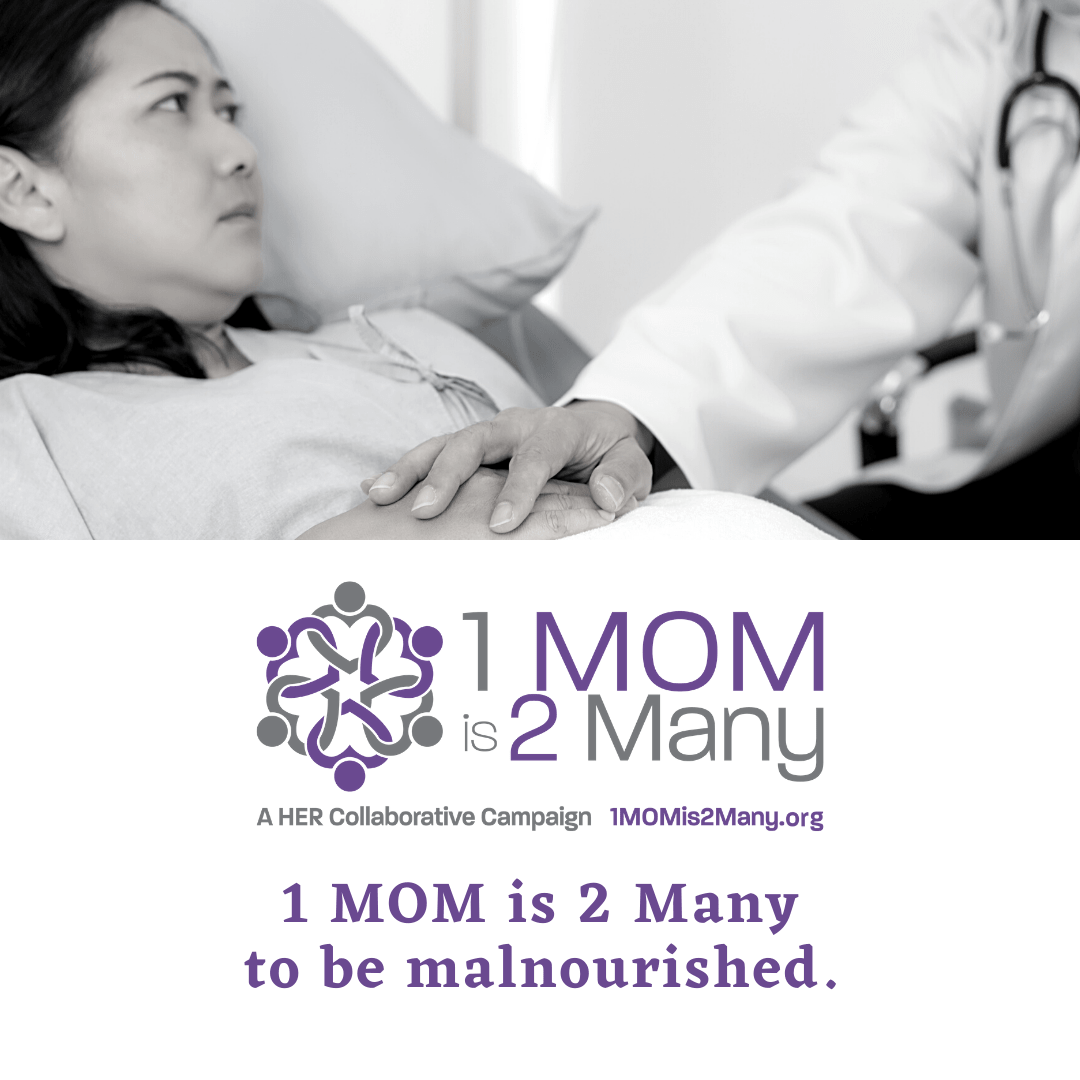


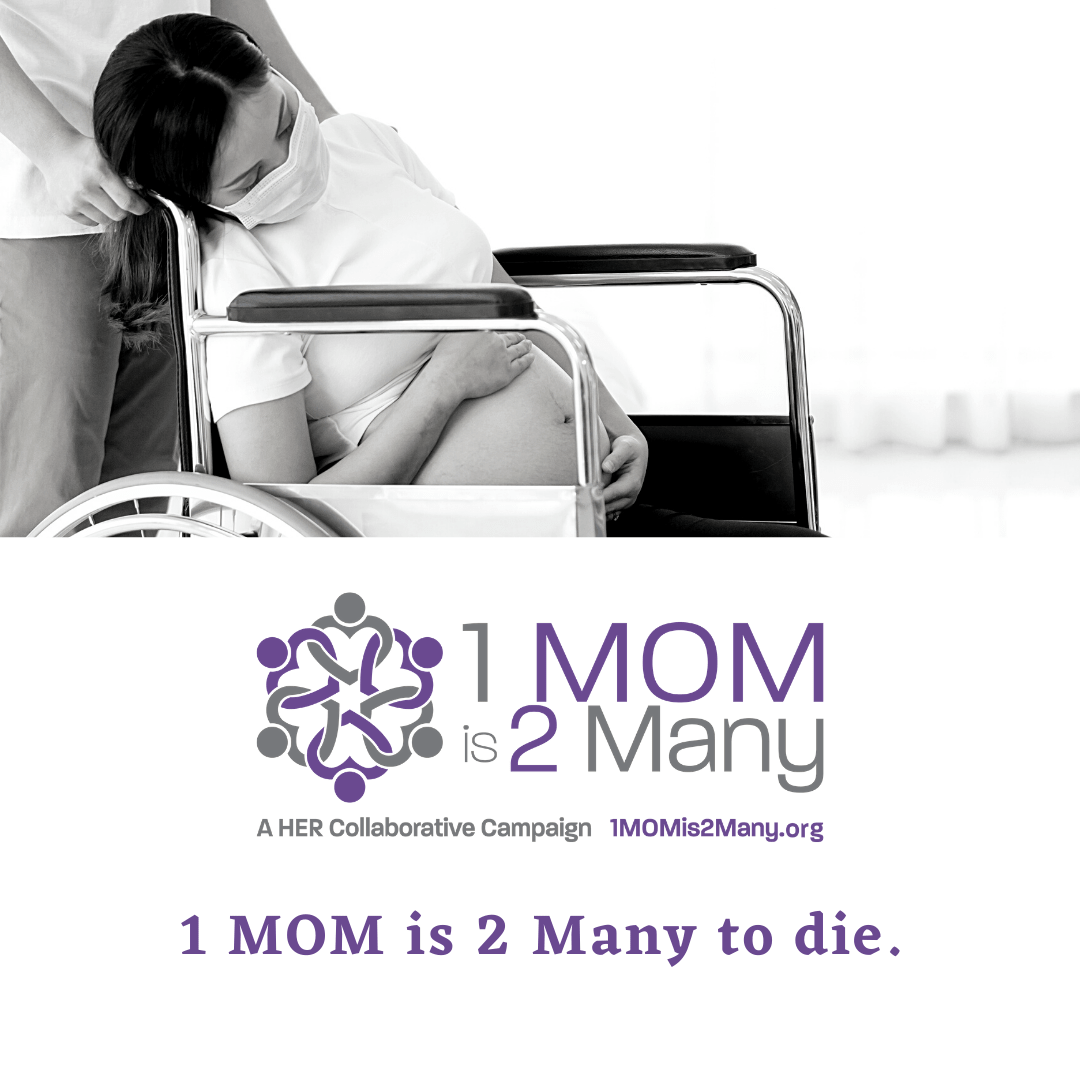
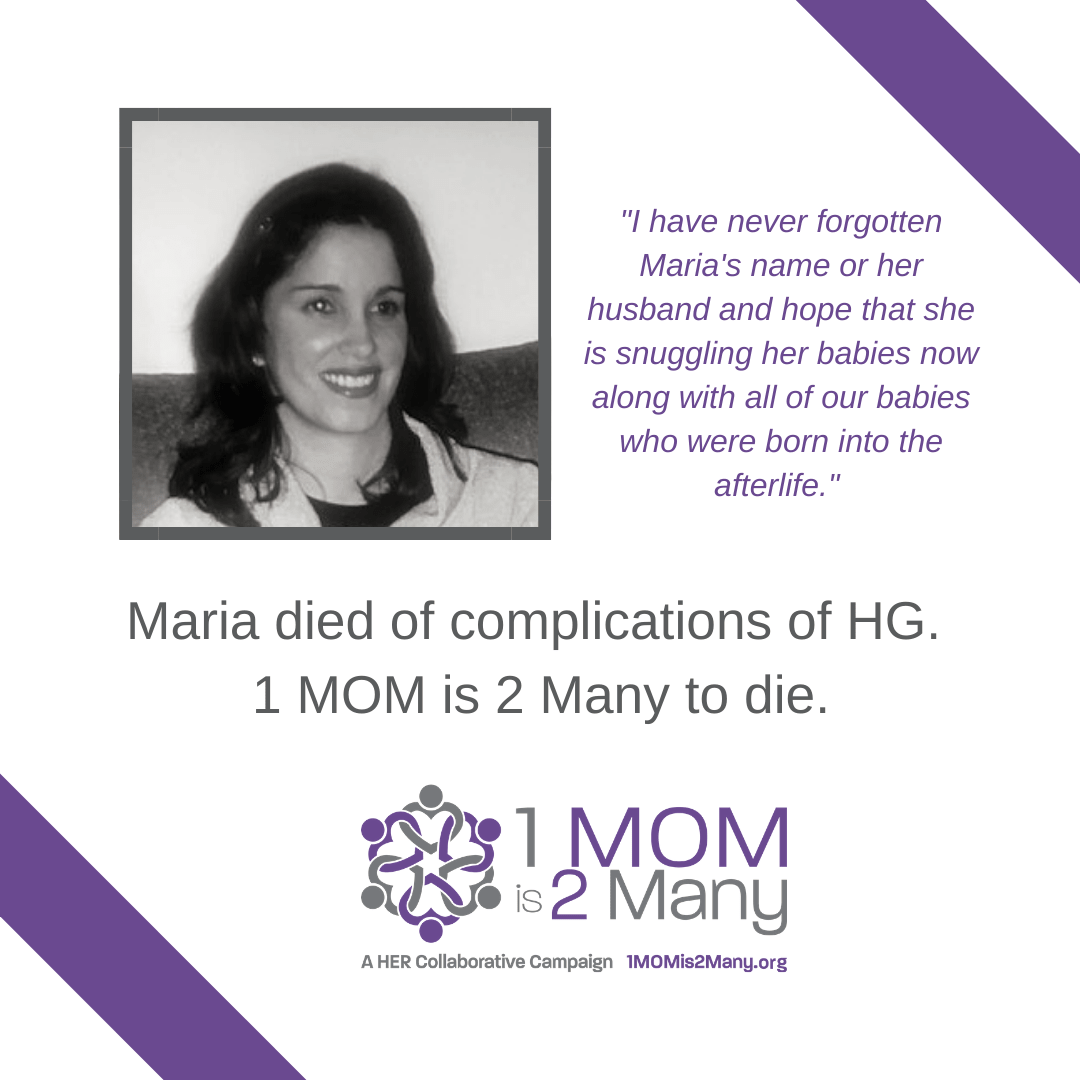
Stories
